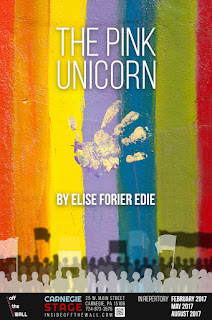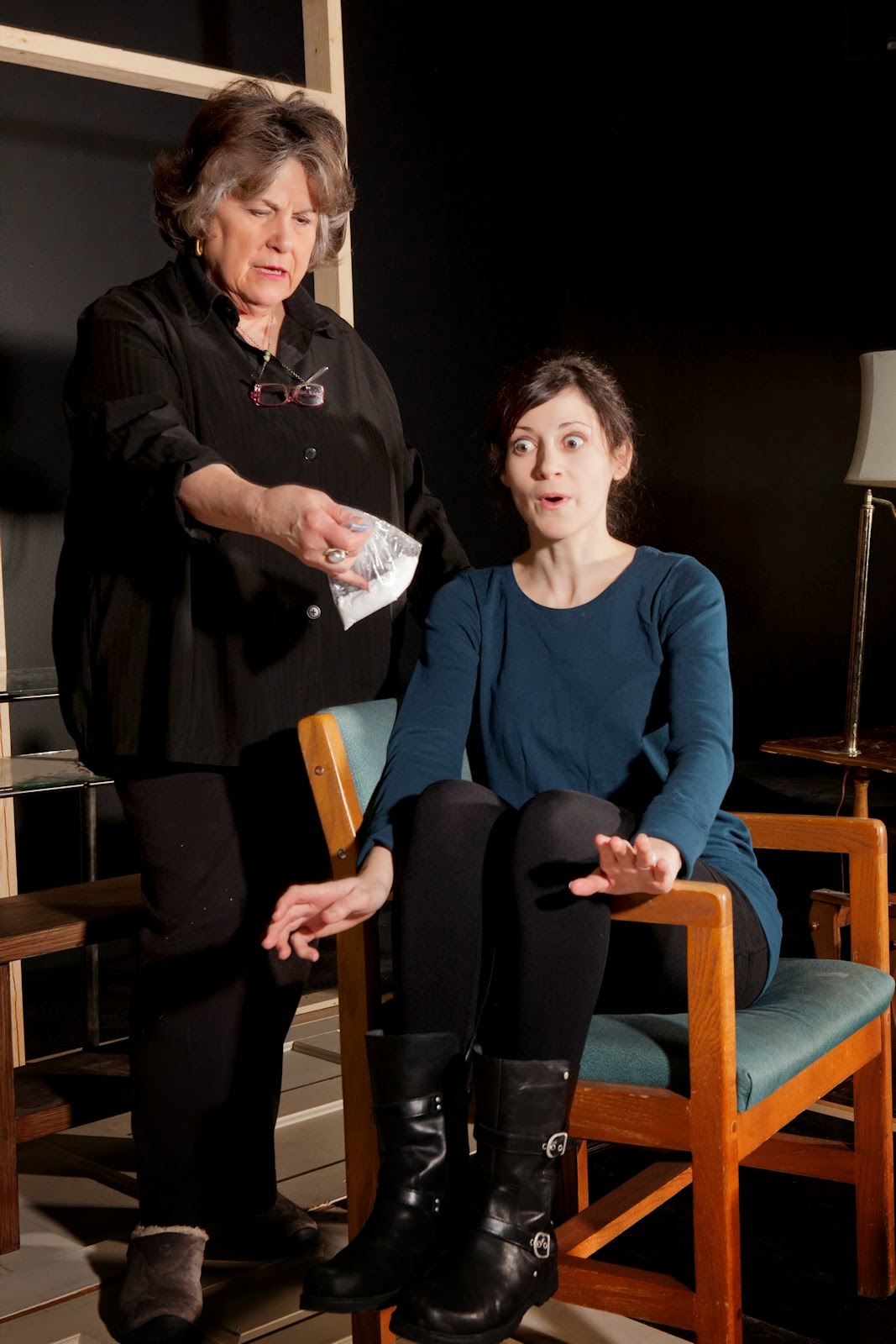The Pink Unicorn - Fresh Voices Review
By Elisabeth Beck
When I sat down to watch The Pink Unicorn, I truly had
no idea what to expect. Admittedly, I was skeptical, because I knew that the
show centered heavily on the realities of diverse gender identity in today’s
world, and when it comes to anything controversial or political, I’m exhausted.
It seems that all we hear about these days is that diversity must be
implemented, that it must be accepted and embraced, and if we don’t agree with
someone’s lifestyle, we’re terrible people.
My feelings on most of these subjects boil down to this: if
someone wants to live his or her life a certain way, they should be able to do
that. I just don’t want to hear about it all the time. I feel that I should be
able to say, “That’s not for me, but that’s great for you,” to whatever someone
is proposing—and that should be an acceptable answer. But usually it’s not.
 |
| Amy Landis - Photo: Heather Mull |
So I wasn’t sure what I was going to watch when I sat down at
Carnegie Stage to watch this show. I was worried that I was just going to watch
a show that lectured on the importance of representation for marginalized groups.
But what The Pink Unicorn projects is something else entirely.
The feeling of approaching the unexpected when attending this
show truly fits in with the political climate in our country. We don’t always
know how to act or what to say around those who are different from us. Many of
us may feel that we want to be accepting and we want to do the right thing—but
we don’t know what that is.
This insecurity is a central theme in the play; the
protagonist, Trish, is a recent widow whose daughter announces that she is
gender queer and would like to start a chapter of the Gay Straight Alliance at
her high school in a rural small town in Texas. Trish shares the entire story
with us—complete with pictures of her daughter from a scrapbook—of how she and
her daughter must fight against the higher-ups of the school to get the chapter
installed, how they get rejected by their church and how Trish herself draws a
line in the sand with her Bible-thumping mother. While this may sound like a
story told by a mother who is willing to accept and embrace her daughter’s
lifestyle, Trish’s outlook is one of fear and uncertainty. She feels that same
way many of us may feel. She does not know how to support her daughter because
she’s unsure of the entire situation, even admitting at one point that she
hates diversity because—as I mentioned earlier—she fears that she will do the
wrong thing. Without saying anymore about the specific plot of the play, I will
say that this is theatre at its best, because it made me think of things I
might not have.
 |
| Amy Landis - Photo: Heather Mull |
I can’t say enough good things about how good Amy
Landis is in her portrayal of Trish. From her accent to her Southern
hospitality to her fierce belief in common decency, Landis disappears into the
role so that as you watch the show, you feel as if this is a true story being
told by a mother who really experienced it, rather than an actress reading
someone’s words. And we might as well believe this story is real—because it
happens every day, to mothers all over the world.
As a Christian who is also a Millennial, I live my life on
borderlines. I’m aware of the realities of the abortion debate. I support gay
marriage because I support human rights—for me they are one in the same. There
is nothing that irritates me more than when Christians use their institution as
a weapon to attack the gay community, pointing to a random passage in the Bible
as evidence for what they’re saying is wrong. The hypocrisy of it, I have
noticed, is that some groups use religion as a platform for hate—when we as
Christians are always taught that it’s not for us to judge whether or not
someone gets to stay or leave. Whether or not someone is good or bad is not our
call to make, so it shouldn’t make a difference to us when we decide how we’re
going to treat that person.
Being a good person in the world is about being decent, not
divisive.
The Pink Unicorn reminds us of this very fact. In the
end, I was left with an impression that an issue we often find confusing is
actually quite simple. We may not always know what to say or how to act. But
just because we don’t understand something completely does not mean that we
cannot or should not advocate and protect people who are different from us. It
doesn’t mean that we can’t fight for what’s fair and decent.




Comments
Post a Comment